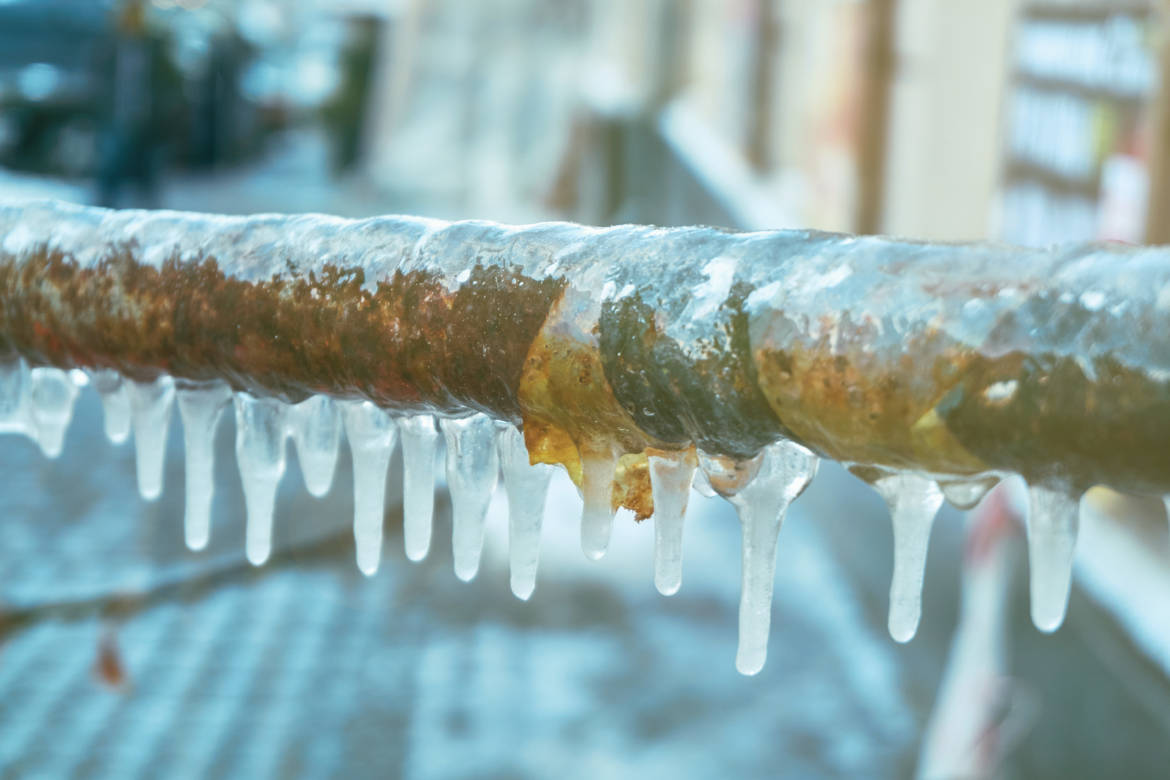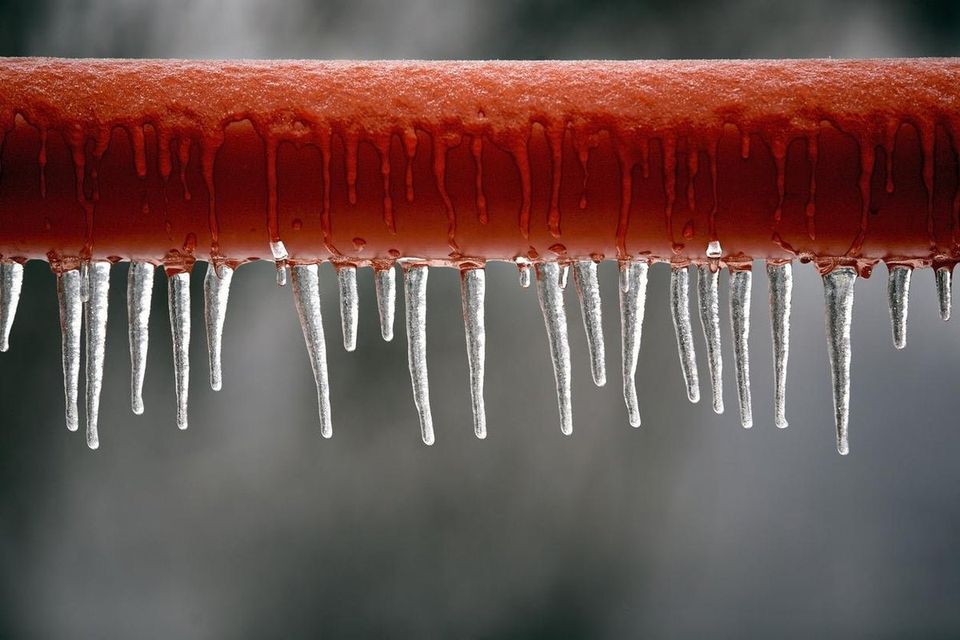Crucial Tips for Avoiding Frozen Pipes in Cold Weather Seasons
Crucial Tips for Avoiding Frozen Pipes in Cold Weather Seasons
Blog Article
What are your thoughts about 6 Ways to Prevent Frozen Pipes?

Cold weather can damage your pipes, especially by freezing pipes. Here's exactly how to stop it from happening and what to do if it does.
Introduction
As temperatures decline, the threat of frozen pipes rises, potentially resulting in pricey fixings and water damages. Recognizing exactly how to prevent icy pipes is critical for homeowners in chilly climates.
Avoidance Tips
Shielding at risk pipelines
Cover pipes in insulation sleeves or use warm tape to shield them from freezing temperatures. Concentrate on pipes in unheated or exterior areas of the home.
Heating techniques
Keep indoor areas sufficiently heated, specifically areas with pipes. Open up cabinet doors to allow cozy air to circulate around pipes under sinks.
Exactly how to determine frozen pipelines
Try to find reduced water circulation from faucets, uncommon smells or noises from pipelines, and visible frost on subjected pipes.
Long-Term Solutions
Structural adjustments
Think about rerouting pipes far from outside walls or unheated locations. Include extra insulation to attics, cellars, and crawl spaces.
Upgrading insulation
Buy high-grade insulation for pipes, attic rooms, and wall surfaces. Correct insulation helps maintain constant temperatures and lowers the danger of icy pipelines.
Shielding Outdoor Pipes
Garden tubes and outdoor faucets
Separate and drain yard hoses prior to wintertime. Set up frost-proof faucets or cover exterior taps with insulated caps.
Comprehending Icy Pipelines
What causes pipelines to ice up?
Pipes freeze when exposed to temperatures listed below 32 ° F (0 ° C) for extended durations. As water inside the pipes ices up, it expands, putting pressure on the pipe walls and potentially triggering them to rupture.
Risks and damages
Icy pipelines can result in water interruptions, property damage, and expensive repair services. Burst pipes can flood homes and trigger comprehensive architectural damage.
Indicators of Frozen Pipeline
Recognizing frozen pipes early can avoid them from breaking.
What to Do If Your Pipes Freeze
Immediate actions to take
If you think icy pipelines, maintain taps available to ease pressure as the ice melts. Utilize a hairdryer or towels soaked in warm water to thaw pipelines gradually.
Final thought
Preventing icy pipes calls for positive measures and quick feedbacks. By recognizing the causes, indications, and preventive measures, homeowners can safeguard their pipes throughout winter.
Helpful Tips to Prevent Frozen Pipes this Winter
UNDERSTANDING THE BASICS: WHY PIPES FREEZE AND WHY IT’S A PROBLEM
Water freezing inside pipes is common during the winter months, but understanding why pipes freeze, and the potential problems it can cause is crucial in preventing such incidents. This section will delve into the basics of why pipes freeze and the associated problems that may arise.
THE SCIENCE BEHIND FROZEN PIPES
When water reaches freezing temperatures, it undergoes a physical transformation and solidifies into ice. This expansion of water as it freezes is the primary reason pipes can burst. As the water inside the pipe freezes, it expands, creating immense pressure on the walls. If the pressure becomes too great, the pipe can crack or rupture, leading to leaks and water damage.
FACTORS THAT CONTRIBUTE TO PIPE FREEZING
Low Temperatures: Extremely cold weather, especially below freezing, increases the risk of pipes freezing. Uninsulated or Poorly Insulated Pipes: Pipes located in unheated areas, such as basements, crawl spaces, or attics, are more prone to freezing. Insufficient insulation or lack of insulation altogether exacerbates the problem. Exterior Wall Exposure: Pipes running along exterior walls are susceptible to freezing as they encounter colder temperatures outside. Lack of Heating or Temperature Regulation: Inadequate heating or inconsistent temperature control in your home can contribute to frozen pipes. PROBLEMS CAUSED BY FROZEN PIPES
- Pipe Bursting: As mentioned earlier, the expansion of water as it freezes can cause pipes to burst, resulting in significant water damage.
- Water Damage: When pipes burst, it can lead to flooding and water damage to your property, including walls, ceilings, flooring, and personal belongings.
- Structural Damage: Prolonged exposure to water from burst pipes can compromise the structural integrity of your home, leading to costly repairs.
- Mold and Mildew Growth: Excess moisture from water damage can create a favorable environment for mold and mildew growth, posing health risks to occupants.
- Disrupted Water Supply: Frozen pipes can also result in a complete or partial loss of water supply until the issue is resolved.
WHY CERTAIN PIPES ARE MORE PRONE TO FREEZING
- Location: Pipes located in unheated or poorly insulated areas, such as basements, crawl spaces, attics, or exterior walls, are at higher risk of freezing.
- Exterior Pipes: Outdoor pipes, such as those used for irrigation or exposed plumbing, are particularly vulnerable to freezing as they are directly exposed to the elements.
- Supply Lines: Pipes that carry water from the main water supply into your home, including the main water line, are critical to protect as freezing in these lines can affect your entire plumbing system.
- Underground Pipes: Pipes buried underground, such as those connected to sprinkler systems or outdoor faucets, can be susceptible to freezing if not properly insulated.
https://busybusy.com/blog/helpful-tips-to-prevent-frozen-pipes-this-winter/

We hope you liked our article about Preventing and dealing with frozen pipes. Thank you so much for spending some time to read through our posting. Sharing is good. You never know, you may very well be helping someone out. Thanks so much for taking the time to read it.
Book Appointment Report this page